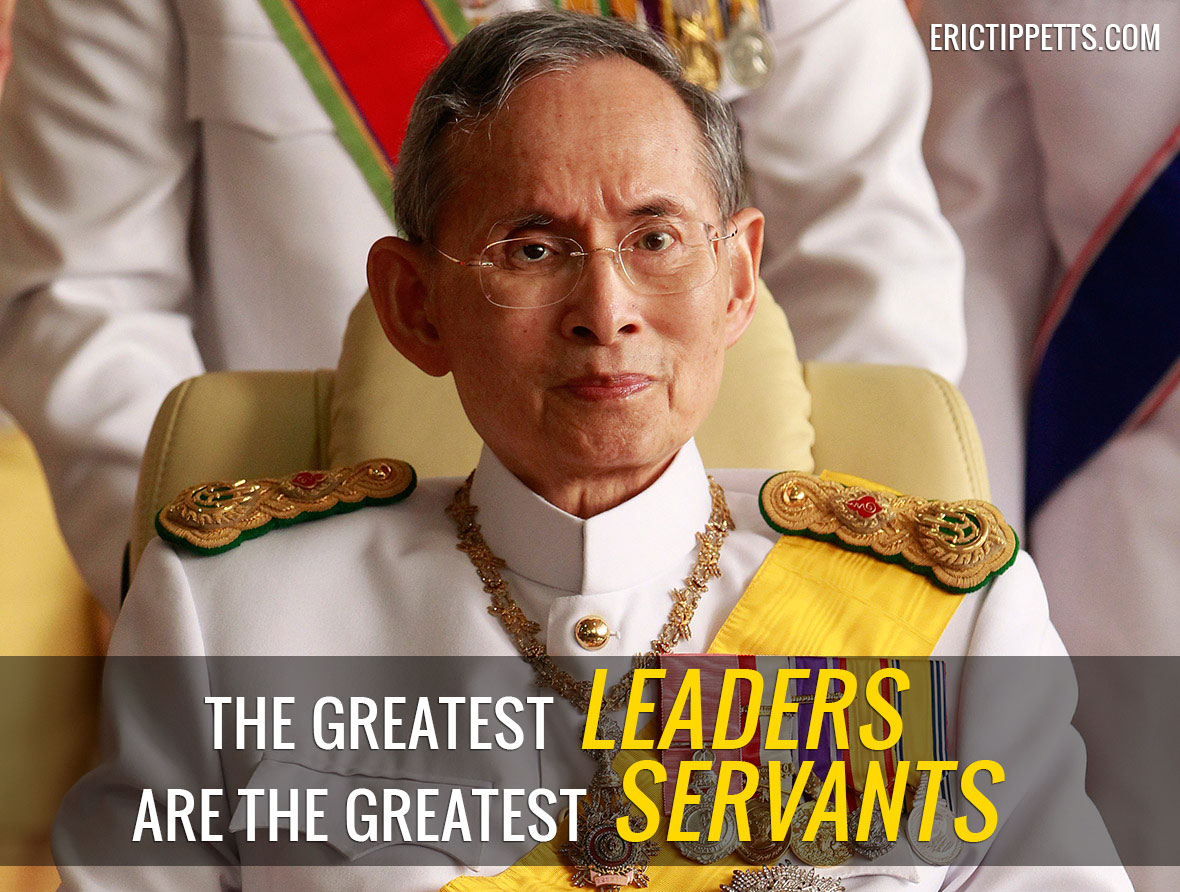Wow! What an amazing Leader! Loved by all the people from every economic landscape.

Bhumibol Adulyadej, also called Phumiphon Adunlayadet or Rama IX (born December 5, 1927, Cambridge, Massachusetts, U.S.—died October 13, 2016, Bangkok, Thailand) ninth king of the Chakkri dynasty (1950–2016), which has ruled or reigned in Thailand from 1782, and Thailand’s longest-serving monarch.
He was a grandson of King Chulalongkorn and was born while his father, Prince Mahidol of Songkhla, was studying at Harvard University. His older brother, Ananda Mahidol, became king in 1935, but on June 9, 1946, Ananda was found dead in his bed of a gunshot wound. Bhumibol immediately succeeded to the throne following Ananda’s mysterious death (the circumstances of which were never explained). He married a distant cousin, Sirikit Kitiyakara, in April 1950 and was formally crowned on May 5, 1950.
The absolute monarchy was abolished in Thailand during the reign of King Prajadhipok as a result of the revolution of 1932. King Bhumibol, therefore, wielded little real political power, although the constitution named him as head of state and commander of the armed forces. His most important function was to serve as a living symbol of and a focus of unity for the Thai nation.
As monarch, Bhumibol enjoyed immense popularity. He led an active ceremonial life and, despite his limited governmental powers, on several occasions played a crucial role in mediations that either resolved or helped to avoid political crisis. One of those instances came in 1973 when popular protests against the dictatorships of Generals Thanom Kittikachorn and Praphas Charusathien were brutally suppressed by the military, and many demonstrators died. Bhumibol responded by persuading the generals to give up power. In 1992, after a military junta had toppled the Thai government and army chief Suchinda Kraprayoon assumed the prime ministership, mass protests again ensued and again were met with violence. Bhumibol intervened, summoning Suchinda and opposition leader Chamlong Srimuang to a televised meeting, during which the king called for the violence to end. Suchinda subsequently resigned, and a caretaker government was installed until new elections could be held.
National celebrations were held in Thailand in June 2006 to mark the 60th anniversary of King Bhumibol Adulyadej’s ascent to the throne. Days before the Diamond Jubilee began, United Nations Secretary-General Kofi Annan presented the UN’s first Human Development Lifetime Achievement Award to Bhumibol at a ceremony in Bangkok.
In September 2006 Bhumibol faced a new crisis after opposition parties boycotted elections called by the prime minister, Thaksin Shinawatra. The Constitutional Court invalidated the results, and on September 19, before new elections could be held, the Thai military engineered a coup while Thaksin was out of the country. It was widely assumed that Thaksin had fallen out of favour with Bhumibol, who quickly endorsed the coup leader and gave royal assent to an interim prime minister’s cabinet.
Concerns about the king’s health began to mount in September 2009 after he was hospitalized for pneumonia. In May 2014 he endorsed the military government that took power after the ouster of Prime Minister Yingluck Shinawatra, but by this time his public appearances had become far less frequent. Bhumibol’s designated heir to the throne was his only son, Crown Prince Vajiralongkorn.

















